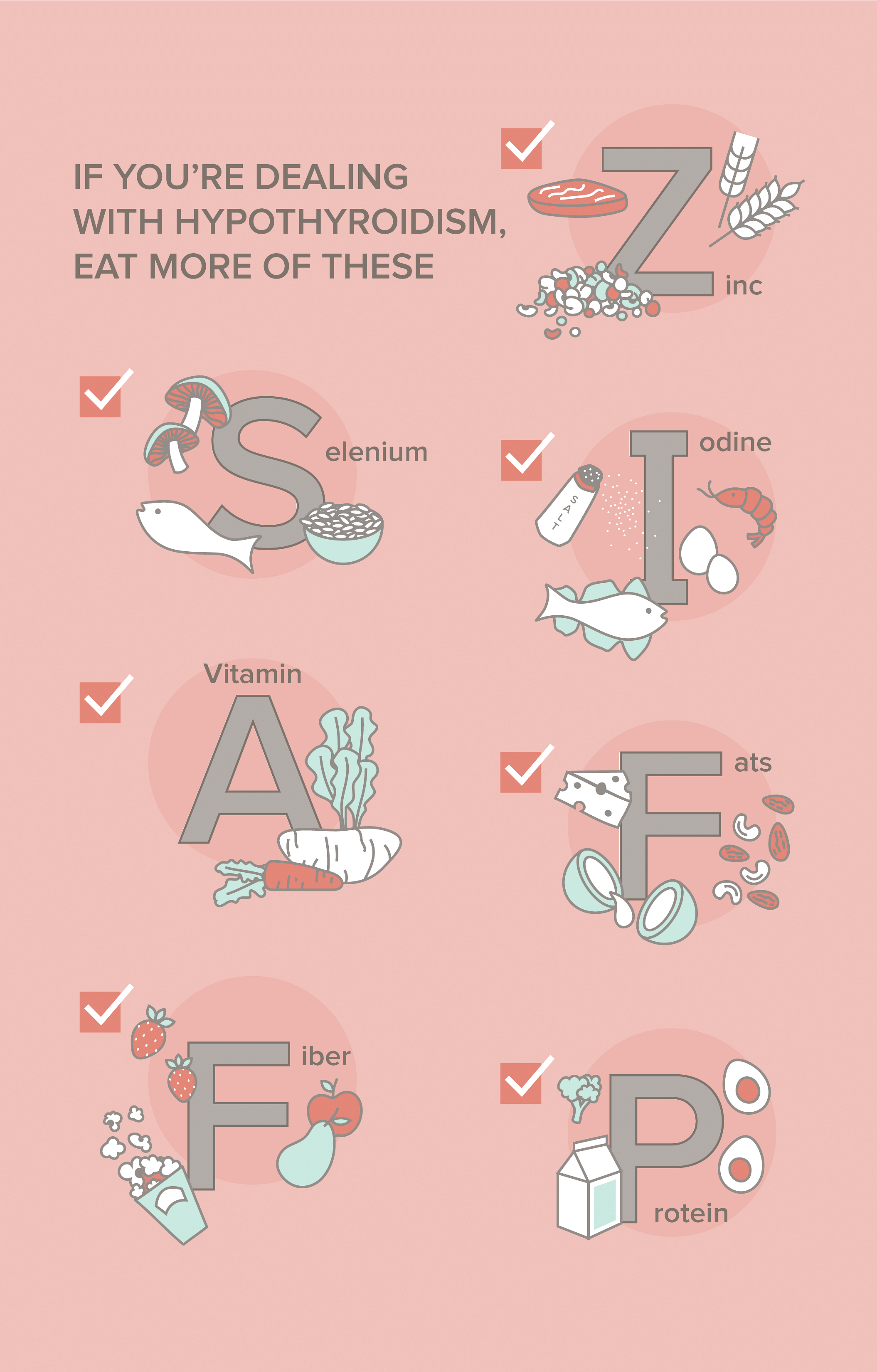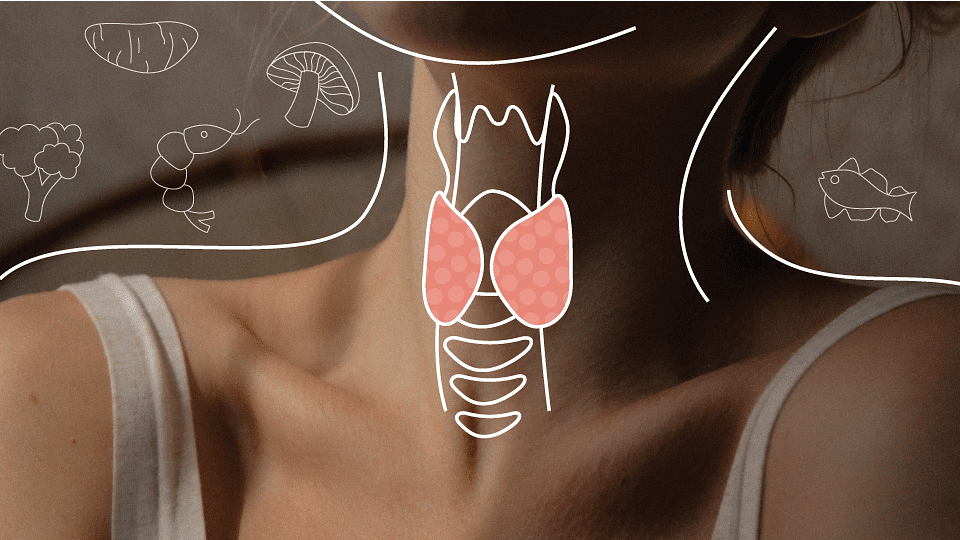The thyroid is a small butterfly shaped gland placed at the base of your neck. A major gland in the endocrine system, the thyroid gland is responsible for a variety of functions such as cell repair, regulation of moods, brain development, body temperature, metabolism, cholesterol levels, energy, and skin health.
In India, irregular thyroid function affects about 1 in 3 people.*
So what is hypothyroidism?
Hypothyroidism is a condition when not enough of the thyroid hormone is made – making it an underactive thyroid. However, with a combination of the right diet, lifestyle, and medication, it can be managed to reduce any uncomfortable symptoms.
Is there a perfect diet for it?
While there is no “perfect” diet to address hypothyroidism, there are plenty of foods, vitamins, and minerals that support a healthy thyroid function. Iodine is particularly important in a hypothyroidism diet, foods high in selenium can prevent oxidative damage to thyroid issues, and eating foods high in Vitamin A can ensure you don’t raise your blood sugar.
Eating the right foods will not only make you feel better but more energized too. You can’t cure hypothyroidism by changing what you eat but adhering to a diet can help your thyroid function properly and mitigate your symptoms.
Drink plenty of water (6-8 glasses a day) and make sure you have healthy oils in your kitchen such as olive oil and avocado oil to prevent inflammation.
Here are a few food groups, minerals, and vitamins you should focus on getting to function at your optimal.
Iodine
The body requires iodine to help produce thyroid hormones. As the body cannot make iodine, it is important to get it from one’s diet.
- Eggs
- Yogurt
- Fish
- Seaweed
Selenium
The mineral selenium is needed for thyroid hormone production, and helps protect the thyroid from damage caused by oxidative stress.
● Brazil nuts
● Sunflower seeds
● Cottage cheese
● Brown rice
● Shrimp
● Yellowfin tuna
● Halibut
Vitamin A
Vitamin A helps to reduce any inflammation, regulate thyroid hormone metabolism, and supports the pituitary gland.
● Carrots
● Sweet Potatoes
● Spinach
Zinc
Zinc is crucial for proper thyroid hormone metabolism.
● Whole Grain Varieties
● Shellfish: Oysters, Crab, Lobster
Fiber
Fiber helps to improve our digestion, prevents constipation, and is beneficial for our gut health. Fruits and vegetables are an excellent source of polyphenols which helps to reduce any inflammation in the body.
● Spinach
● White Potatoes
● Beetroot
● Broccoli
● Strawberries
● Banana
● Oranges
● Apple
● Pears
Protein
Getting protein from lean sources will manage your hunger and fullness levels and support your metabolism.
– Non-Vegetarian
● Chicken Breast
● Turkey Breast
● White Fish
– Vegetarian
● Quinoa
● Legumes (beans, peas, lentils)
● Seeds (hemp, chia, flax)
● Nuts (almonds, macadamia, cashews)
● Nutritional Yeast
● Spirulina
Fats
It is important to reduce your intake of “bad” fats such as saturated and trans fats as these can contribute to heart diseases. These types of fats are inflammatory and should be avoided when possible. Instead choose fats which include monounsaturated and polyunsaturated fats which are more heart-healthy.
● Avocado
● Cheese
● Dark Chocolate
● Fatty Fish: Salmon, Trout, Mackerel, Herring, and Tuna

Should one make any lifestyle changes?
While your diet and medication alone won’t cure hypothyroidism, positive health promoting behaviors such as movement and stress management will help manage your thyroid function and mitigate symptoms.
Movement
Managing your thyroid health isn’t complete without focusing on physical activity because joint pain, anxiety, and disturbed sleep often accompanies hypothyroidism. Exercises such as walking and yoga are shown to manage those symptoms, and decrease fatigue by incorporating movement into your routine.
Stress Management
While stress does not cause thyroid dysfunction, it can aggravate those who are already diagnosed with hypothyroidism. When your body is stressed it releases cortisol which causes your thyroid gland to work harder to produce enough of the thyroid hormone, and weaken your immune system. Practices such as breathwork, meditation, and yoga should be included to combat any feelings of stress and anxiety.
Hypothyroidism presents unique challenges due to the symptoms, however rather than focusing on a particular diet, it’s important to eat nutritious foods that make you feel good mentally and physically. Get adequate sleep to feel restful and alert, focus on gentle movement, and practice techniques to keep your stress at bay.
Our experts are constantly working to provide you with authentic content that can help you make informed decisions about your health. Find more expert contents on our blog, right here. You can also read articles on Lifestyle and Nutrition right here.
*The Economic Times.









